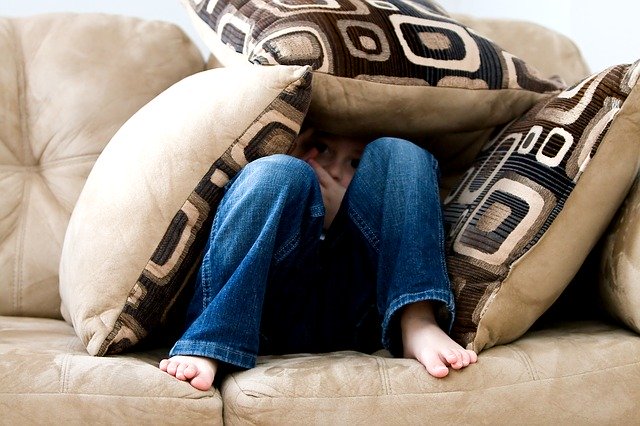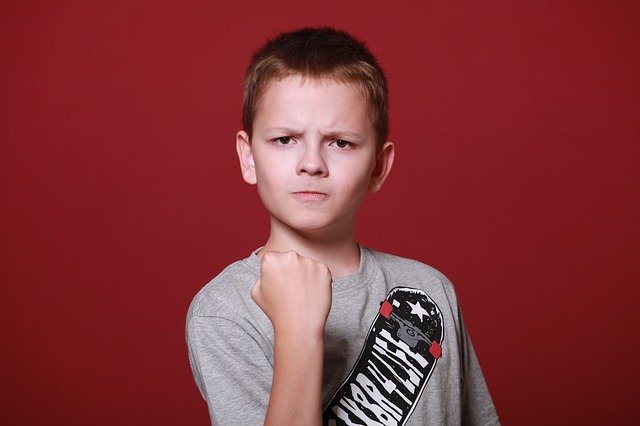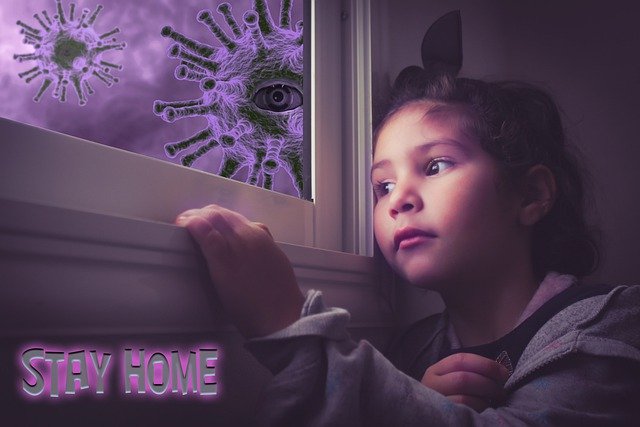The circumstances we are spending our weeks and months in are far from perfect. It is only natural that everybody is scared and confused. There is not a single age group the virus is not affecting at least indirectly.
The eldest members of our society are endangered since getting infected can be lethal in their age. The middle-aged population is worried for their health, as well as for their finances and all other aspects of living after the breakout is over.
The youngest ones are not so much at risk of becoming ill, but they see and feel that the entire world is in danger, so they tend to be scared.
Let us take a closer look and try to answer the question of how COVID-19 anxiety impacts children.
Children are scared
The first emotion that children who can understand the situation feel is fear. If not presented with the right information, they might even be terrified of the virus.
Surely, a global pandemic is not a joke, but there is no reason to panic. Kids should be explained what is going on and how we can prevent the disease from reaching our homes and affecting our health. But, what’s even more important is to keep calm ourselves.
There is no use telling them that everything is going to be fine and that they do not have anything to worry about if we are stressing out. We cannot hide our behavior from them, and they can always feel when something is wrong.

How can we help our children feel less scared? Well, we need to practice what we preach – in this case, that means trying to be more positive.
Try not to watch the news when your children are around. Of course, it is important that you stay informed, but you can keep yourself updated even without your kids knowing it. Also, try to avoid discussing your financial situation in front of children who are old enough to understand what that means. Fighting with your spouse will not help either. Instead, you should include your children in planning your next vacation that you will on once the pandemic is over.
That will help them see that life will get back to normal eventually.
Try to allow them to relax in their own ways, too. All parents worry about their child having too much screen time, especially if they are trying to juggle a job working from home and childcare themselves. Although balance is necessary, a little extra time playing forza horizon 5 is unlikely to cause permanent damage to an older child.
For younger children, downloading educational games and apps that can continue teaching them about maths problems or spellings, or getting them to use cognitive skills like problem solving, is no bad thing, providing they also get enough physical activities and time playing outside. If it comforts them and also helps you to concentrate on work for an hour or so, don’t demonise it unnecessarily.
They can be angry
Their daily routine is turned upside down. Kids are no longer able to go to school, meet their friends, play with them, or do some of the sports and activities they used to practice. Social distancing is even more difficult for them than for adults, especially if they do not have siblings. They feel that there is a nasty virus keeping them apart from their friends, relatives, and grandparents, so they are angry.

What can we do to eliminate the anger? We can talk to them and find out what they find the most frustrating.
If they are missing their loved ones, let them know that there are ways we can be in contact with them and still respect the social distancing measures. Video calls are perfect for this occasion. Of course, they can never be enough to replace the real physical contact, but for the time being, they are as close as it gets.
Social networks are also here to help us stay in touch, so why not use them for this purpose? Many companies would be closed at the moment if there weren’t for such technologies.
Thanks to this, you can even organize an entire household relocation while practicing social distancing. Professional moving companies like Gibraltar Van Lines can organize any type of move while also protecting the health of your family and their workers.
COVID-19 anxiety can even cause depression with children
Some children will react to the new situation by becoming depressed. All the changes and restrains can be too much for their young minds to handle, so they might decide to give up fighting and let themselves sink. Depression in children is a serious issue and it is very important that it is spotted right away.
Every parent should encourage their children to talk about their feelings. If they notice anything suspicious about their behavior, it is time to consult a professional. Here are some indicators that can show you your child is suffering from depression:
● Feelings of helplessness and hopelessness;
● Appetite changes – we are eating a bit too much these days, but any drastic changes can be a symptom of depression;
● Loss of interest in daily activities or people your child cares about;
● Irritability and self-destructive behavior;
● Problems with concentration;
● Sleep changes – COVID-19 anxiety can impact children in a way that they change their sleeping habits either towards insomnia or oversleeping;
Building coping skills in children with anxiety is one of the strategies to deal with depression. We can also help our children by seeking professional assistance. A mental health professional will be able to tell us whether our child is just a bit under the weather, or they have some serious issues.
Maybe we are the ones who have to change their approach. Ask yourself: How does my child truly feel about the situation? Even though their problems might seem silly to you, for your children, they are as real and scary as the recession is real to us.
COVID-19 anxiety can even impact children in a positive way
The coronavirus outbreak brought up so many changes to our lives and not all of them are negative. For instance, parents got more time to spend with their children and by keeping them entertained during lockdown they learned even more about their offspring. Family bonds became stronger than ever. But, that’s not all.

Many parents used this opportunity to teach their children some new, mostly practical skills. Fishing, baking, knitting, and many already forgotten hobbies became popular with age-appropriate groups of children.
This is the perfect time to teach your children some household chores too! For instance, you can show them how to do the dusting, vacuuming, washing-up, car washing, laundry folding, etc.
These are all practical skills that can only help them in the future.



